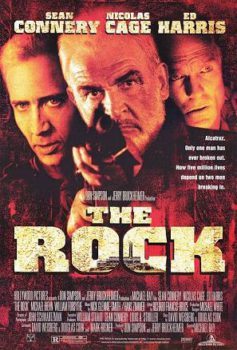How to Write Memorable Antagonists

Ed Harris, as General Francis X. Hummel, is one in a long line of memorable antagonists in stories.
ANTAGONISTS fulfill an indispensable function in stories. They act as spurs to protagonists forcing them to achieve their true potential.In The Rock, Stanley Goodspeed, a chemical warfare expert working for the F.B.I. is sent on a mission with a former British spy, John Patrick Mason, to prevent General Francis Hummel from launching chemical weapons into San Francisco from Alcatraz Island.
The General demands one hundred million dollars in war reparations to be paid to the forgotten families of slain servicemen who died on covert operations. His actions, therefore, stem from his sense of duty to his men and their families, whom he believes have been abandoned by the country they served.
A well-crafted antagonist is more than a mere technical device. He is also a flesh-and-blood character with a personality, a belief-system, and a goal of his own.
How many times have we seen the villain doing villainous things, but can’t understand why?
This is because he is merely a cog in the writer’s plot. Since the antagonist and protagonist form the essential narrative unit that drives the story forward, a poorly written villain will stall the engine.
Nailing your Antagonists
Generally speaking, many of the aspects that apply to writing a credible character apply to the antagonist, but one in particular aspect warrants special mention: The villain believes he is the hero of his own story. He believes he is justified in doing what he does because of some past injustice, injury, or misconstrued sense of duty.
In The Matrix, agent Smith despises human beings. He hates their smell, their sweaty bodies, which he sees as prisons of meat. His job is to rid his perfect world of anyone who threatens it. He is intelligent, determined, skilled — in his own mind, a hero with a cause. It is partly this self-belief that makes him such a memorable villain.
Summary
Give your antagonist a powerful cause, operating within a self-consistent value system, in order to lend him credibility and depth.
Tweet
The post How to Write Memorable Antagonists appeared first on Stavros Halvatzis Ph.D..



